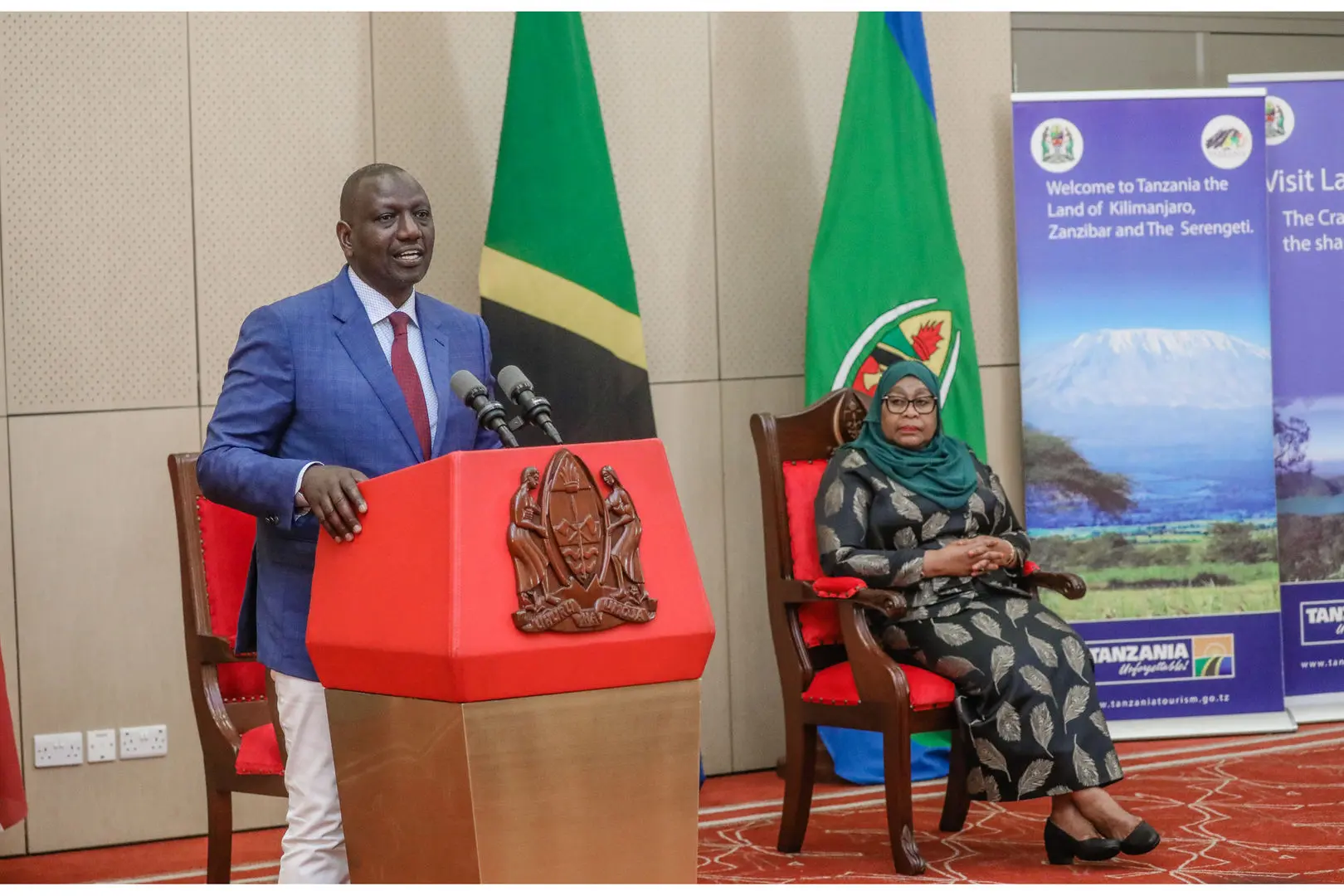DAR ES SALAAM, Tanzania — Tanzania has enacted a new directive prohibiting foreign nationals from owning and operating businesses in 15 primarily small-scale sectors. This move has sparked considerable concern and backlash, particularly from neighboring Kenya.
The new policy bars foreign involvement in various sectors, including mobile money transfers, tour guiding, small-scale mining, on-farm crop buying, beauty salons, curio shops, and the establishment of radio and TV operations.
Trade Minister Selemani Jafo explained that the measure was necessary due to the increasing involvement of foreigners in the informal sector and areas that are better suited for Tanzanian citizens.
Domestically, the directive has generally been welcomed amidst growing concerns that foreign nationals, including Chinese, have been encroaching upon smaller trades.
Last year, traders in Dar es Salaam’s bustling Kariakoo shopping district organized a strike to protest against aggressive taxation and perceived unfair competition from Chinese traders.
“We’ve welcomed this decision because it protects the livelihoods of Tanzanian traders,” Severine Mushi, the head of the Kariakoo traders’ association, told Vivid Voice News.
Violators of the new ban risk fines, six months in jail, and the loss of their visas and work permits. Jafo added that he hoped the ban, announced on Monday, would also incentivize foreigners to invest in larger-scale businesses.
However, the directive has been met with anger in Kenya, with some critics arguing that it contravenes East African Community (EAC) agreements that guarantee the free movement of people and trade among its eight member states.
Kenyan Trade Minister Lee Kinyanjui called for the ban to be removed, stating it would “hurt” both Kenya’s and Tanzania’s economies. “It is therefore critical, in the spirit of EAC, that bilateral engagements be held to resolve these issues,” Kinyanjui wrote in a statement on Wednesday.
Bernard Shinali, chairman of Kenya’s National Assembly Trade Committee, warned that the move could trigger reciprocal restrictions, as reported by Kenya’s Daily Nation.
“There are many Tanzanians working in our mining sites too,” the newspaper quoted him as saying. He added, “It is clear that Tanzanians have gone too far and we should cut links with them.”
Veteran Kenyan hotelier Mohammed Hersi also questioned Tanzania’s decision to restrict occupations for foreigners, stating on X, “Sometimes, it is important to focus on the bigger picture… Protectionism will never help a country to thrive.”
Many other Kenyans have voiced their concern on social media, describing Tanzania’s policy as a significant challenge to regional integration.
“Tanzanians are doing all manner of small businesses in Kenya without any hindrance. It’s clear Tanzania has never been serious in making the EAC work,” one person posted on X.
Tanzania and Kenya have a history of periodic political and economic tensions.
Tanzania’s past implementation of protective tariffs and import bans has previously drawn criticism from its regional partners.
Also Read: Mutunga, Karua, and rights activists sue Tanzania at EACJ over deportation and entry ban
In May, Kenya’s Foreign Affairs Minister Musalia Mudavadi noted that approximately 250,000 Kenyans lived, worked, or conducted business in Tanzania, underscoring the importance of preserving cordial relations.
He made these remarks while addressing diplomatic tensions surrounding Tanzania’s treatment of Kenyans who had traveled to Dar es Salaam to observe the treason trial of opposition leader Tundu Lissu, some of whom were deported, while prominent Kenyan activist Boniface Mwangi, along with Ugandan activist Agather Atuhaire, reportedly went missing and were later subjected to torture and sexual mistreatment.
Tanzania is scheduled to hold general elections in October, with the ruling CCM party widely expected to retain power.
Among the prohibited activities for non-citizens are:
- Operating salons, small retail shops, eateries, and mobile money transfer kiosks
- Running mobile phone repair businesses
- Providing tourism-related services such as tour guiding
- Offering domestic, office, and environmental cleaning services
- Engaging in small-scale mining and local parcel/postal delivery
- Operating curio shops, museums, radio and TV stations
- Acting as brokers or agents in real estate or business transactions
- Participating in clearing and forwarding services
- Buying crops directly from farms
- Running gambling operations outside licensed casinos
- Owning or managing micro and small industries

